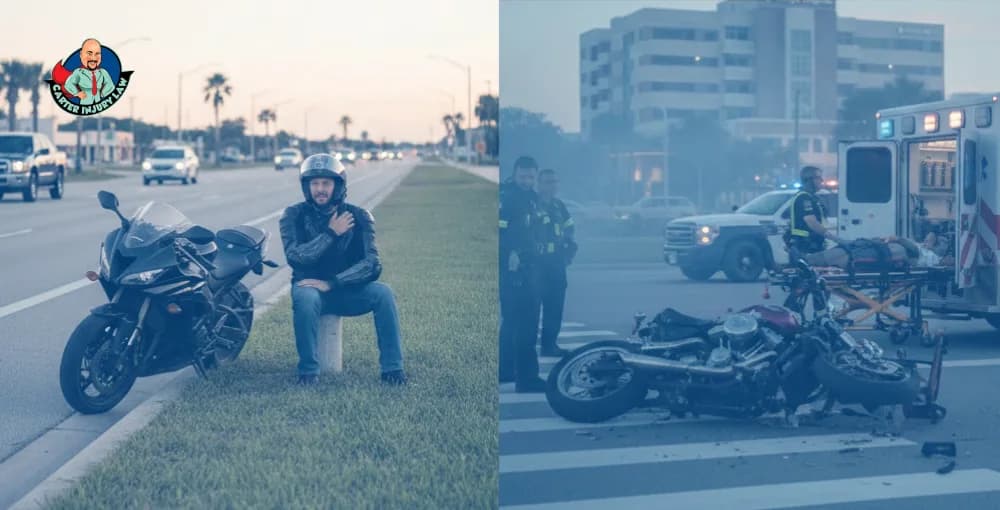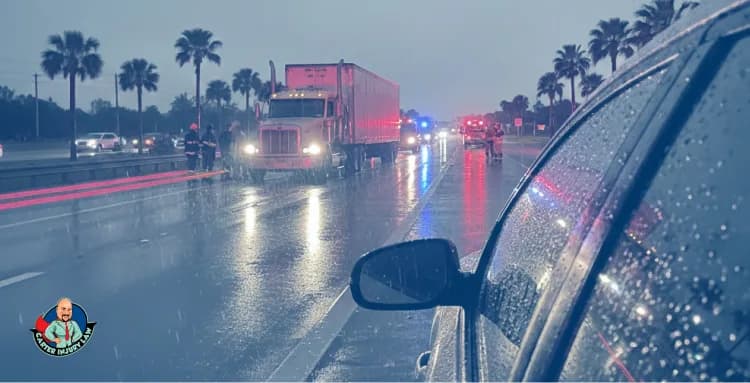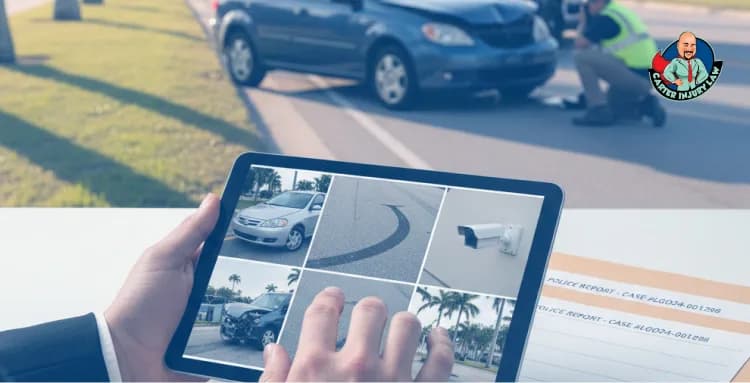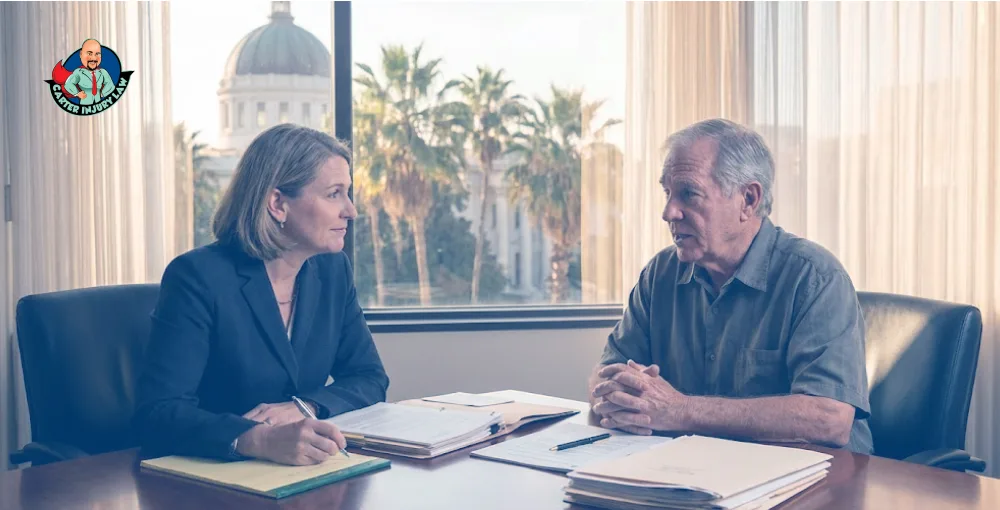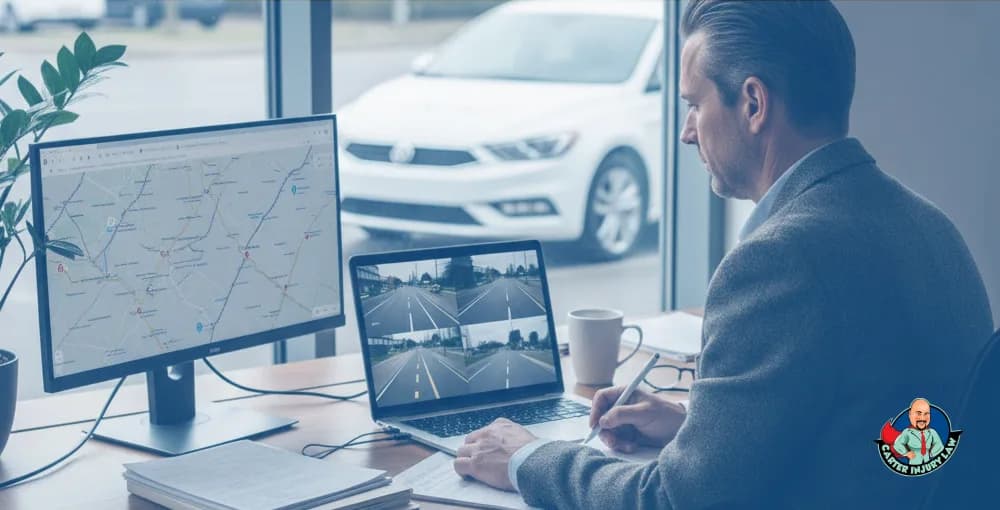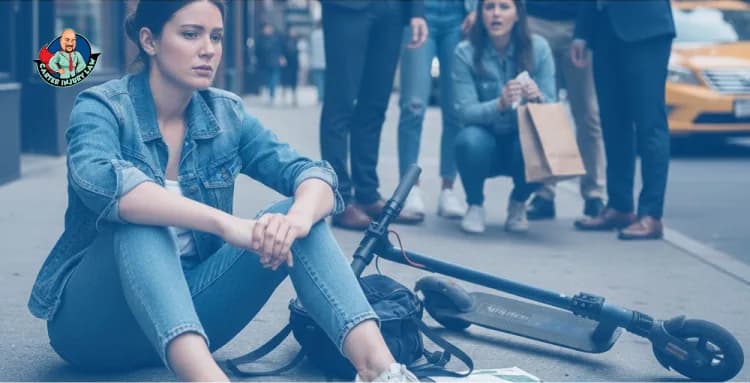I’ve spent years at Carter Injury Law representing people whose lives were turned upside down after a rideshare accident. These cases aren’t like ordinary fender benders. The moment an Uber or Lyft vehicle is involved, the questions multiply. Was the app on or off? Whose insurance applies? Can the company itself be held responsible, or will the driver be left carrying the weight?
I’ve seen hardworking commercial drivers lose their licenses, families struggle to pay medical bills, and victims wait months for clarity while insurers argue over coverage. The law in Florida is supposed to provide order in these situations, but in reality it often feels like a shifting maze.
And the truth is, the single detail that decides the fate of most of these cases is something few people even think to ask at the crash scene…
(1) The App Switch That Decides Whose Insurance Pays
The key detail in a rideshare crash is the driver’s app status. Was the app switched off, turned on but waiting for a fare, or was there a passenger already in the back seat? That single fact changes everything, because insurance coverage in Florida rises and falls with the app.
When the app is off, drivers are usually left with only their personal auto policy. Once the app is on, but before a ride is accepted, there’s limited contingent coverage that rarely comes close to covering serious injuries. And when a passenger is in the car, that’s when the rideshare company’s million-dollar policy often kicks in.
I tell my clients this because the insurance policy that applies determines whether victims are fully compensated or left fighting over scraps. It also decides whether a commercial driver with a CDL (Commercial Drivers License Program) ends up with a career-ending problem, which I’ll explain later. And if you’re assuming you can sue the rideshare company directly, be careful. Florida courts have been siding with Uber and Lyft, treating their drivers as independent contractors. That means the company’s shield is strong but not impenetrable.
And then there’s the darker side of these cases, the staged crashes and fraud rings that make insurers even more aggressive. If you don’t protect your evidence, you risk being caught in a fight you never asked for.
(2) Why Going After Uber or Lyft Isn’t as Simple as It Seems
Most people assume they can hold Uber or Lyft directly accountable after a crash. It feels natural, right? The driver was working for the company, so the company should pay. However, Florida law doesn’t always work that way.
Courts here have leaned toward protecting rideshare giants. Judges often rule that drivers are independent contractors, not employees, which means the companies avoid automatic responsibility for their drivers’ mistakes. That doesn’t mean the companies are untouchable, but it does mean you need a strategy.
In my practice, I’ve seen victims frustrated when they realize they can’t simply go after the deep pockets. Instead, we dig into the facts, the app records, and the insurance triggers to build a case. The driver, the insurance company, and the available coverage often become the real battlefield.
And here’s where things get more complicated. If that driver happens to be a CDL holder, the fallout isn’t just about paying claims. A single violation can threaten their license and their livelihood. I’ll explain how federal and state rules collide with rideshare accidents, and why commercial drivers often have far more at stake than they realize.
Then there’s another twist, one that catches people off guard, the rise of staged crashes and fraud schemes targeting rideshares, which make insurance companies even more aggressive in their defenses. That’s where preserving evidence becomes significant.
(3) How One Crash Can Put a CDL and a Career on the Line
If you hold a commercial driver’s license, a rideshare accident can do more than cost you money; it can cost you your career.
Here’s why. Commercial drivers operate under federal rules set by the FMCSA (Federal Motor Carrier Safety Administration) as well as Florida’s own CDL laws. These rules create a separate track of consequences, ones that kick in even if your insurance claim is still pending or your civil case hasn’t been decided.
Take this example. A rideshare driver with a CDL gets into a crash. If the police report shows a major violation, like DUI, leaving the scene, or reckless driving, the FMCSA rules require automatic disqualification of that license. The first offense can sideline a driver for a year or more. A second can mean losing the license permanently. And here’s the tricky part, those rules apply even if the violation happens while driving a personal car, not just a semi-truck.
Even so-called “serious violations,” like excessive speeding or following too closely, stack up fast. Too many in a short window and the CDL is suspended. That means a driver could technically win their civil case but still lose the ability to drive commercially.
I’ve counseled drivers who were blindsided by this, because they thought the insurance payout was the whole battle. In truth, the CDL consequences often matter more than the lawsuit, because no license means no livelihood.
And this ties directly back to the earlier sections. If the rideshare company avoids liability, and the insurance company points to gaps in coverage, the driver may be left carrying not just the financial fallout, but also the career-ending penalties. And remember, fraud and staged crash investigations can trigger criminal charges too, which take the risks to an entirely different level.
(4) The Hidden Schemes That Put Honest Drivers at Risk
There’s another layer to rideshare accidents that most people don’t see coming, staged crashes.
Florida has become a hotspot for these schemes. Here’s how they work, groups of bad actors intentionally cause or fake accidents involving rideshare vehicles. They then use shady clinics and sometimes even lawyers to inflate medical bills and file lawsuits. On paper, it looks like a legitimate claim. In reality, it’s organized fraud.
Why does this matter if you’re the innocent driver or passenger caught in the middle? Because insurance companies treat every rideshare crash with suspicion, even the genuine ones. I’ve represented clients who were telling the truth but still faced delays, denials, and aggressive defense tactics because insurance companies thought the crash might be part of a scam.
The really dangerous part for drivers, especially CDL holders, is that if your name shows up in one of these investigations, you could be dragged into civil suits or even criminal inquiries. Even if you had nothing to do with the fraud, the cloud of suspicion can damage your case and your career.
That’s why I tell every client the same thing, document everything. Save your app status, screenshot your ride history, get the names of passengers and witnesses, and take photos of the scene. Fraud rings thrive in the absence of proof. Solid evidence is your best protection.
And this circles back to the bigger picture, insurance companies fighting to avoid payouts, rideshare corporations shielding themselves behind contractor rules, and commercial drivers staring down career-ending penalties. Which is why the closing message is simple, you can’t afford to go through this alone.
(5) Protecting Victims, Defending Drivers, and Why I Work on Contingency
When I look back at the cases I’ve handled, the common thread is this, rideshare accidents touch on shifting insurance rules, company liability defenses, federal CDL regulations, and even the risk of staged crash fraud. Every detail matters, and missing one can cost victims fair compensation or cost drivers their livelihood.
That’s why at Carter Injury Law, we fight to level the playing field. I know what the rideshare companies will argue, I know how insurance companies stall, and I know the traps that commercial drivers face when their CDL is on the line. My role is to cut through the noise, protect your evidence, and give you the best chance at a fair outcome.
And here’s something else I want you to know, we work on a contingency fee basis. That means you pay nothing up front. We don’t get paid unless we win for you. This structure lets you focus on recovery, not on how you’ll afford legal help.
So if you’ve been hurt in a rideshare crash, or if you’re a commercial driver worried about what a single accident could mean for your career, don’t try to go at it alone. Call me at Carter Injury Law. Your rights, your license, and your future are too important to leave to chance.




